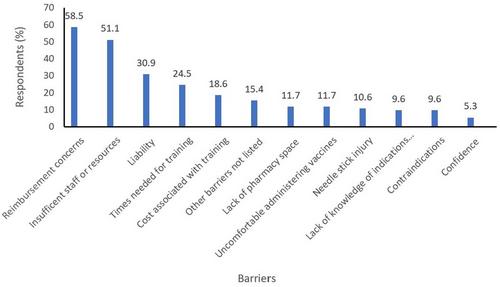Provision of vaccination service in a community pharmacy: impact on pharmacists' job satisfaction and well-being
Abstract
Background
The expanding scope of practice for pharmacists in Australia now includes the provision of vaccination services. Therefore, it is crucial to understand the perceptions of pharmacists regarding vaccination services and the impact of providing this service on their job satisfaction and well-being.
Aim
This study aims to evaluate the job satisfaction and well-being of pharmacists in Australia regarding the provision of vaccination services. Additionally, it aims to determine the barriers to administering vaccines by pharmacists.
Method
A mixed-methods study was conducted among pharmacists in Australia. An anonymous survey was distributed to pharmacies via email and advertised on social media sites. Ethics approval was granted by the RMIT Research Ethics Committee (Reference no: 24747) and the study conforms to the Australian National Statement on Ethical Conduct in Human Research. Informed consent was obtained for all participants via a project information sheet and voluntary completion of an anonymous survey.
Results
The study found that community pharmacists experienced moderate job satisfaction levels, with mean job satisfaction and well-being scores of 17.6 (±6.2) and 17.0 (±6.50) respectively. A correlation was identified between job satisfaction and well-being, indicating that lower job satisfaction corresponded to lower well-being. Factors such as years of experience (p = 0.001), work-related stress (p = 0.001), willingness to vaccinate (p = 0.001), workload (p = 0.001) and lack of support and reimbursement for vaccinating pharmacists influenced job satisfaction and well-being levels.
Conclusion
The study highlights the median to minimal job satisfaction levels among pharmacists in Australia and the correlation between pharmacists' willingness to administer vaccines and their job satisfaction and well-being. Additionally, the study underscores the need for additional support and reimbursement for vaccinating pharmacists. To enhance the pharmacy profession's role in the healthcare system, new strategies are required to support pharmacists in providing vaccination services.


 求助内容:
求助内容: 应助结果提醒方式:
应助结果提醒方式:


